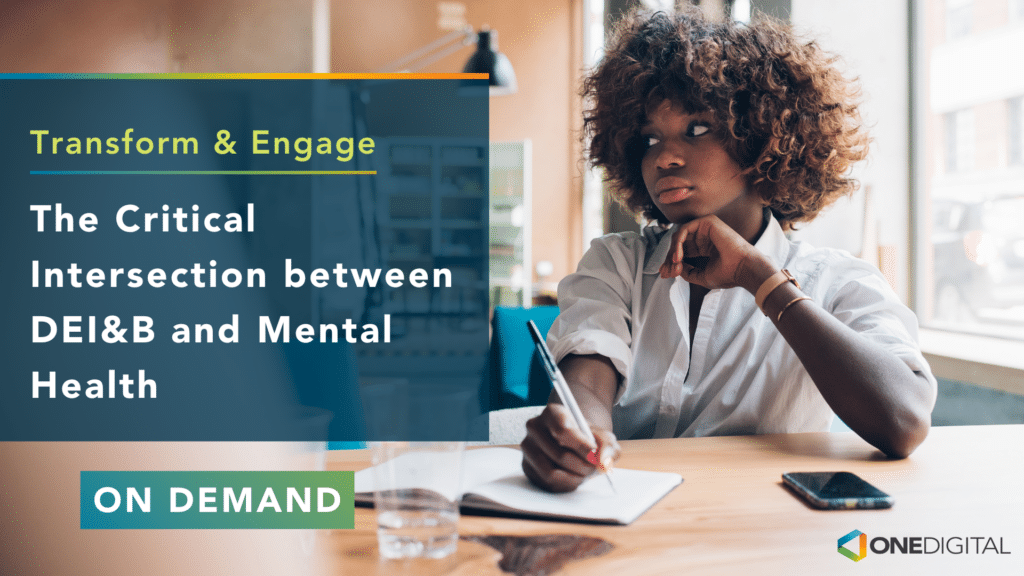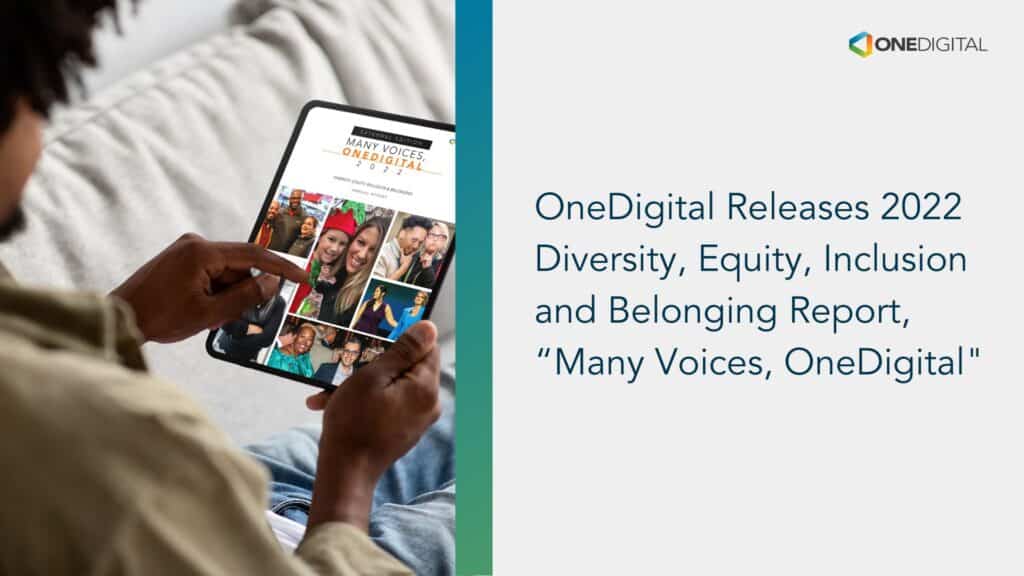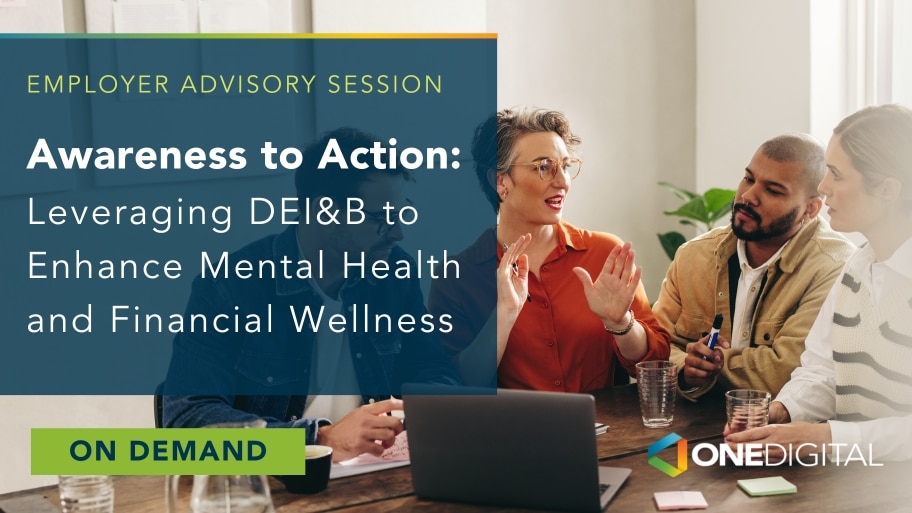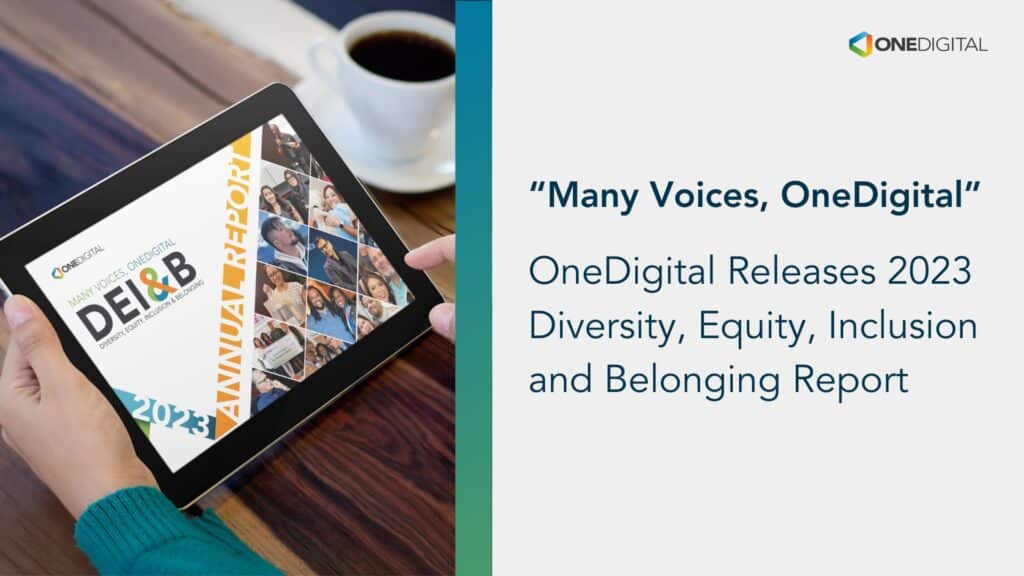Better Benefits, No Headaches
DEI&B: Not Just a Trend, But a Key Business Objective
DEI&B: Not Just a Trend, But a Key Business Objective
In today's rapidly evolving workplace, prioritizing diversity, equity, inclusion, and belonging (DEI&B) is not just a buzzword; it's a critical factor for fostering a thriving work environment.
Recognizing and valuing the unique perspectives, experiences, and backgrounds of employees is essential for promoting their overall well-being. Therefore, DEI&B should be a top priority and part of every company’s business objectives.
It’s no secret that employee mental health challenges have skyrocketed over the past few years as a result of the pandemic, economic volatility, and social justice uprisings. According to the World Health Organization, approximately 12 billion global working days are lost due to depression and anxiety each year, resulting in a $1 trillion loss in overall productivity. When leaders incorporate inclusive practices and build a “human-centered culture” in their organizations, employees feel valued, respected, heard, and included.
Implementing effective DEI&B programs aligned to well-being can also lead to a host of other benefits for employees. Inclusion and belonging has a direct impact on increased motivation, creativity, and innovation. Organizations that support employee development in these areas are also attractive to potential job candidates. High-performing employees are more likely to stay with the organization as well, leading to a more competitive workforce and better financial results.
There are two belonging-focused initiatives that are incredibly helpful to further demonstrate and define the importance of DEI’s connection to well-being: human-centered leadership and psychological safety.
Human-centered leadership
Shifts organizational cultures, allowing leaders and employees to partner as co-creators of the work experience. The employees’ thoughts, ideas, contributions, and authentic backgrounds are valued and respected within their teams. Building human-centered cultures enables clarity of purpose, encourages self-expression, addresses unique life needs, and designs personalized, flexible workflows. Human-centered leaders show up as authentic, empathetic, adaptive, and committed to creating a sense of belonging for all employees, regardless of their background or identity.
Psychological safety
Is about employees feeling comfortable taking emotional risks to share their thoughts and ideas in the workplace without retribution. Unsurprisingly, when employees feel safe, they are more likely to be engaged and productive. Psychological safety can be created by deliberately creating space for employees to have open and candid conversations about topics like mental health or cultural norms, behaviors, and values that cultivate or inhibit psychological safety, as well as creating an environment where employees feel comfortable reporting any unprofessional behavior to their leaders.
As with many successful enterprise-wide implementations, the cultural shifts should start from the top. Leaders must desire to be self-aware, be life-long learners, and be equipped with the knowledge, skills, and abilities that reflect inclusive, human-centered leadership within their teams and across the organization.
The key leadership skills that promote inclusive, people-focused work environments include:
- Adopting a learning frame is a way of viewing and understanding the world that emphasizes the importance of learning and growth. Leaders who accept and implement a learning frame show that they are open not only to new ideas, but new perspectives as well.
- Inviting participation as a leader creates an environment where everyone feels comfortable sharing their ideas or opinions. As a result, leaders are not afraid to delegate tasks and give others a voice in decision-making.
- Responding proactively requires openness to receiving and providing timely feedback—be it for improvement or encouragement—that helps instill another level of trust in their teams.
DEI&B permeates every part of the human-focused work experience. These simple yet effective concepts require leaders and employees to grow and show up emotionally (and physically) to do the work. Organizations that align DEI&B and well-being to business objectives are more likely to see increased profitability and create healthy cultures of support, value, and collaboration. As leaders, let us reflect on these insights and develop realistic strategies that make a positive impact on the most important asset—our people.
Watch "The Critical Intersection of DEI&B and Mental Health" for more on how to create the foundation to better understand and support the mental wellbeing of a diverse workforce and offer helpful tools and resources.




